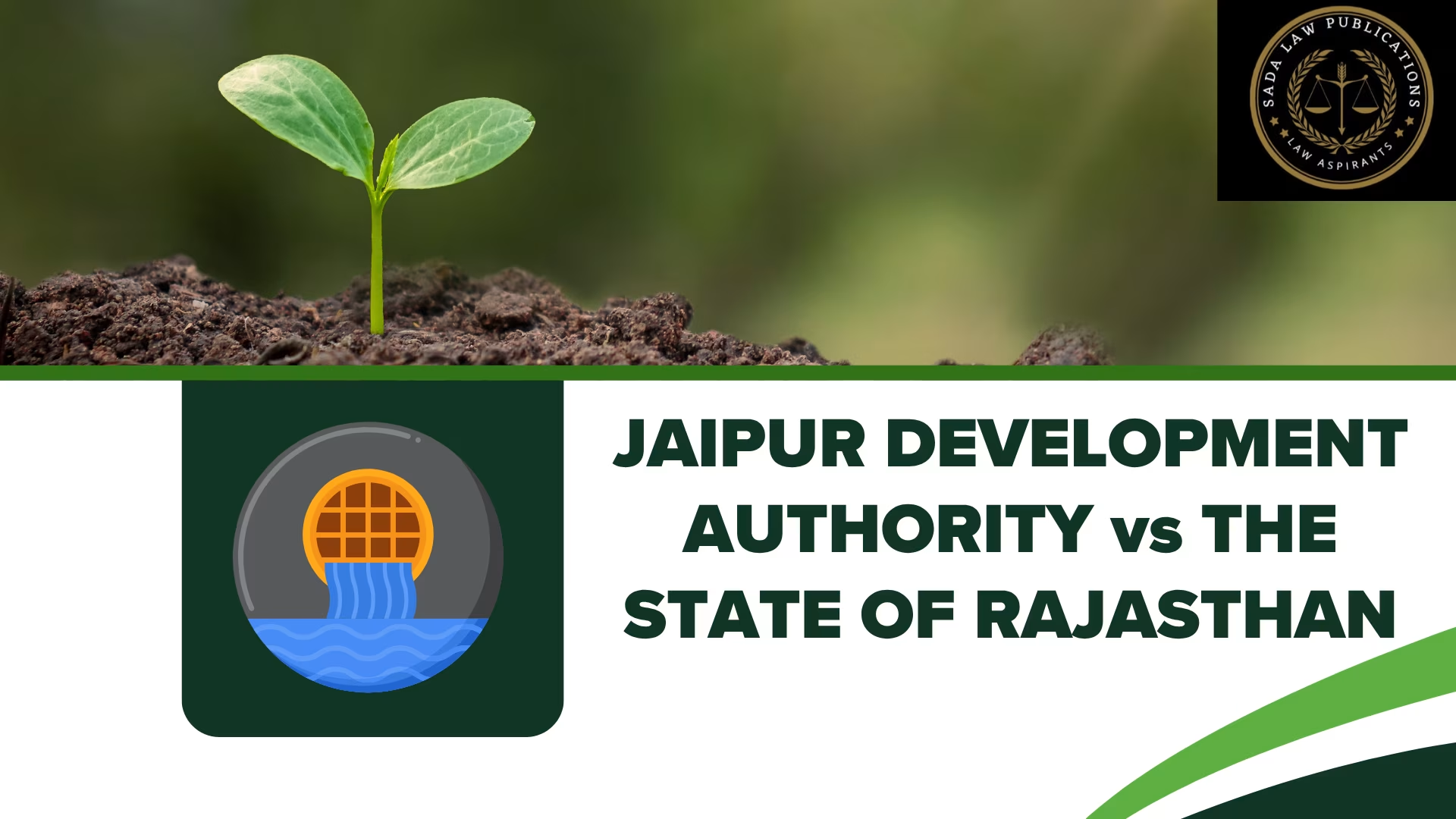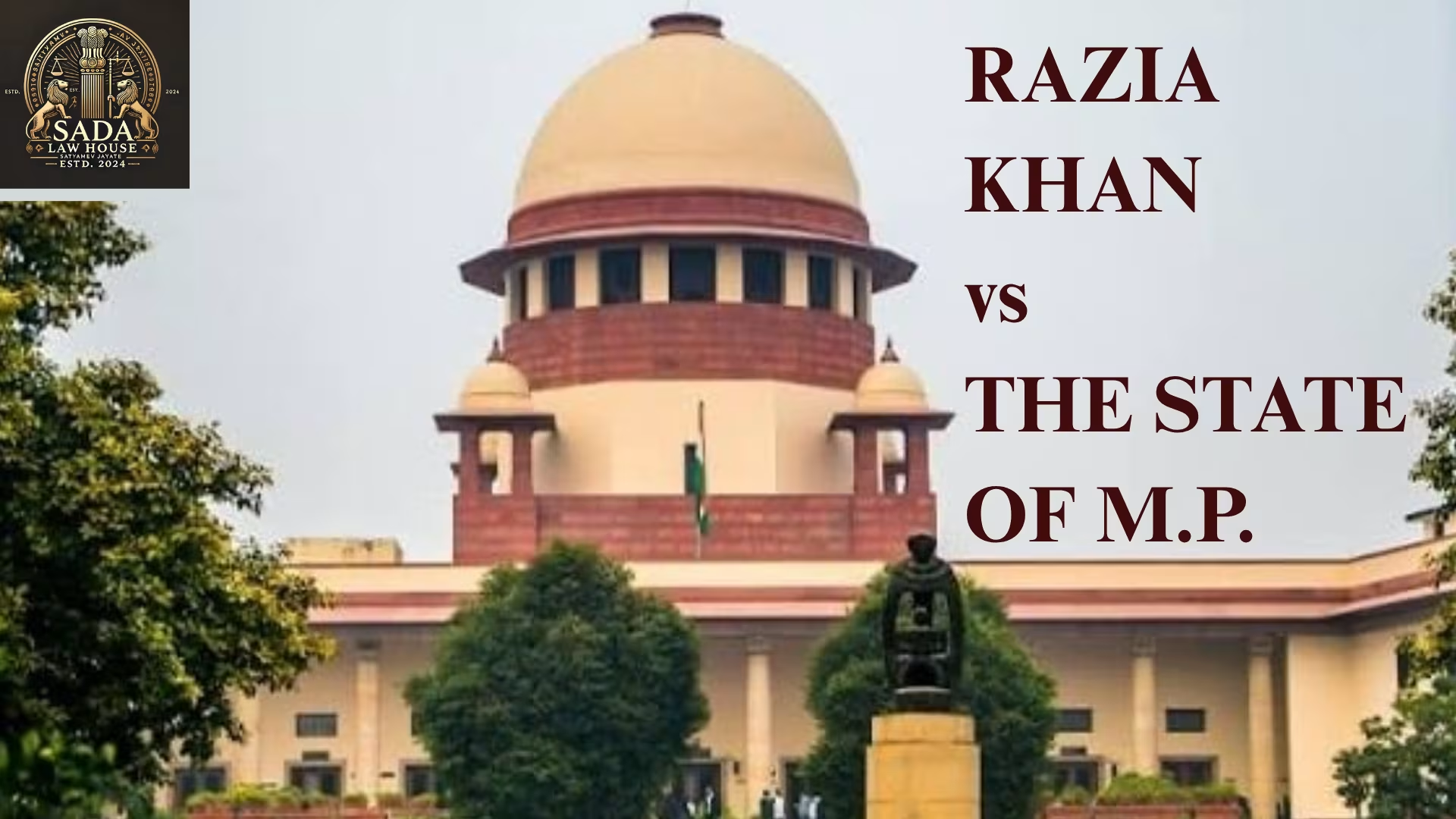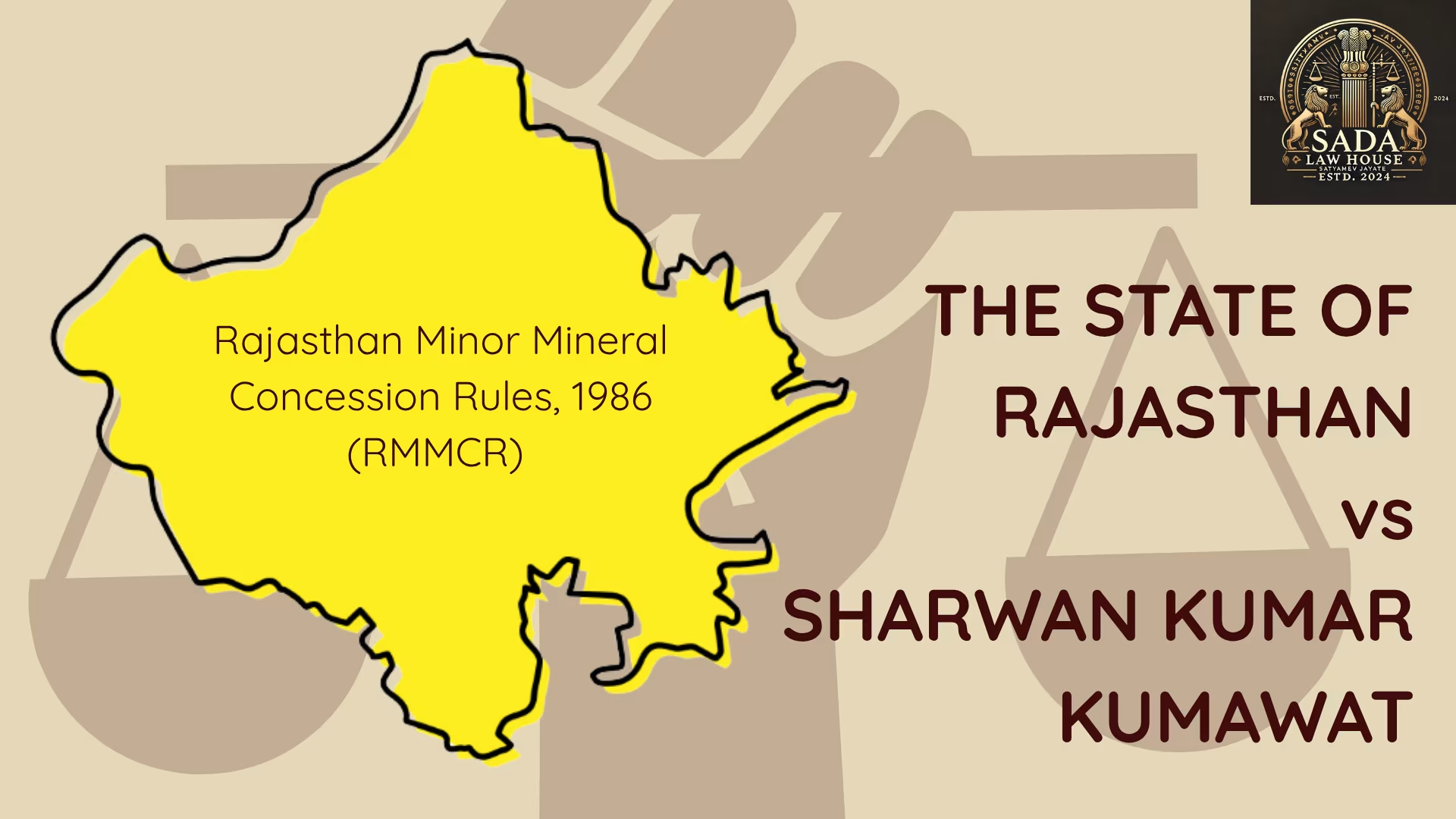Jaipur Development Authority v. State of Rajasthan (2023)
- PRABHAT KUMAR BILTORIA
- 14 October, 2025

Introduction
The case of Jaipur Development Authority (JDA) v. State of Rajasthan, decided by the Supreme Court of India on 9 August 2023, dealt with the legality and procedural fairness of the interim environmental compensation imposed by the National Green Tribunal (NGT).
The NGT had increased the compensation against the JDA from ₹33.75 lakhs (recommended by an Expert Committee) to ₹2 crores, citing non-compliance with sewage treatment regulations but without offering any recorded reasoning. The JDA approached the Supreme Court seeking to set aside this order on the grounds that it was arbitrary and lacked judicial justification.
Facts of the Case
The Jaipur Development Authority operates a Sewage Treatment Plant (STP) in Jaipur, Rajasthan.
The National Green Tribunal (NGT), in its order dated 25 April 2022, found that the STP was operating in violation of environmental norms for 135 consecutive days.
An Expert Committee was constituted to assess the environmental damage and recommended ₹33.75 lakhs as interim environmental compensation.
However, the NGT increased the amount to ₹2 crores without providing any specific explanation or reasons for rejecting the Committee’s assessment.
The Supreme Court, in an interim direction, recorded that the JDA had already deposited ₹33.75 lakhs with the Jaipur District Magistrate.
Issue of the Case
Whether the National Green Tribunal acted lawfully in enhancing the interim environmental compensation to ₹2 crores without offering any justification or reasoning for rejecting the Expert Committee’s recommendation of ₹33.75 lakhs?
Judgment
The Supreme Court Bench, comprising Justice Abhay S. Oka and Justice Sanjay Karol, delivered the following key findings and directions:
Absence of Reasoning by NGT:
The Court observed that the NGT’s order lacked any reasoning or explanation in paragraph 8, where it imposed the ₹2 crore compensation. The Tribunal failed to state why it disregarded the Expert Committee’s recommendation of ₹33.75 lakhs.Violation of Judicial Discipline:
The Court underscored that judicial and quasi-judicial bodies must provide proper reasons for their conclusions, especially when deviating from expert opinions. Arbitrary exercise of discretion undermines the principles of procedural fairness and transparency.Order Set Aside and Remand:
The Supreme Court quashed the NGT’s order enhancing the compensation to ₹2 crores and remanded the matter back to the NGT for fresh consideration after hearing all parties.Status Quo Maintained:
The Court directed that the ₹33.75 lakhs already deposited by the JDA shall be treated as interim compensation until the NGT arrives at a new decision.Expeditious Disposal:
The NGT was instructed to reconsider and decide the matter promptly, ensuring due process and adherence to legal standards of reasoning.
Conclusion
The Supreme Court of India reaffirmed the importance of reasoned decision-making and procedural fairness in environmental adjudication. The Court held that expert recommendations cannot be disregarded arbitrarily and that every judicial or quasi-judicial order must be supported by clear, recorded reasoning.
By setting aside the NGT’s unexplained enhancement of compensation, the Court emphasized that fairness, accountability, and transparency are foundational to environmental justice. The case stands as a reminder that even in matters of ecological governance, the rule of law and procedural discipline must prevail over administrative arbitrariness.
Case Laws






